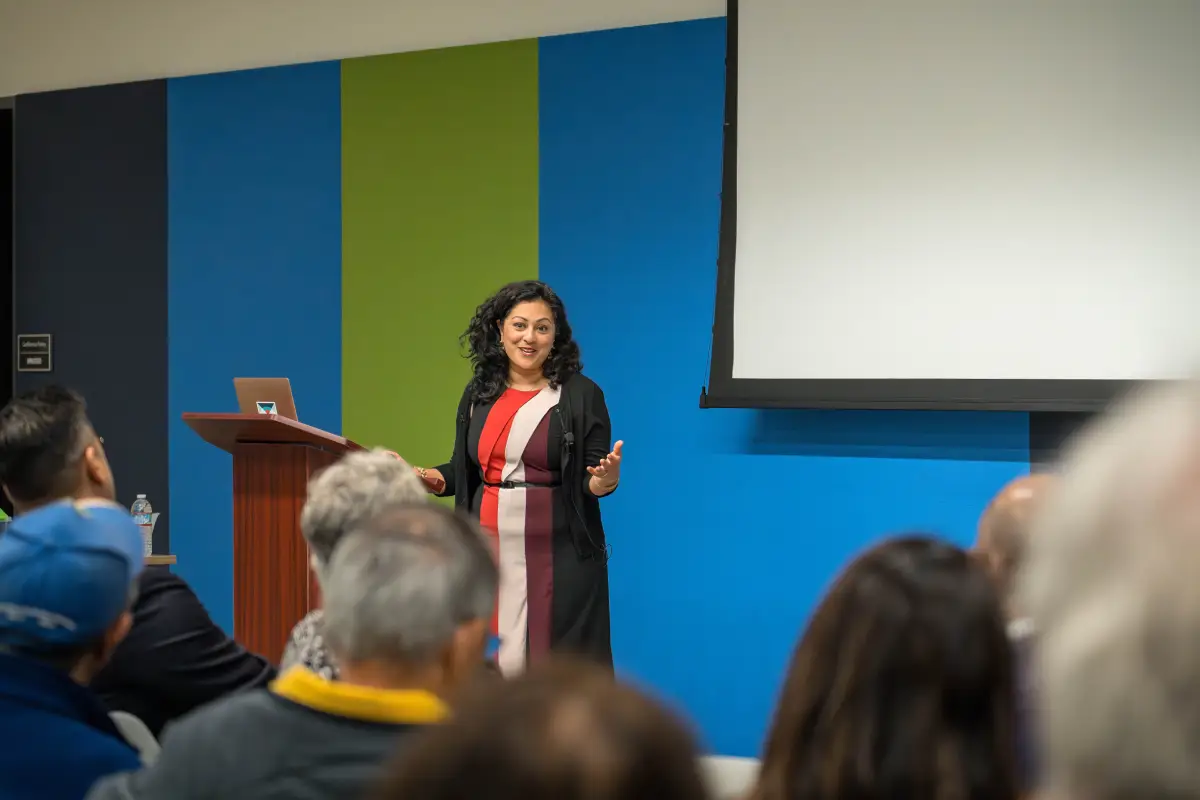
Annual Solanki Lecture Focuses On ‘Inclusive Innovation’
India-West Staff Reporter
LONG BEACH, CA –
On the evening of April 18, the Yadunandan Center for India Studies at California State University, Long Beach, hosted the twenty-first annual Solanki Lecture, the longest-running endowed lecture series focusing on the history and culture of South Asia and the South Asian diaspora in the US.
This year’s distinguished speaker was Shobita Parthasarathy, Professor of Public Policy and Women’s and Gender Studies at the University of Michigan. Dr. Parthasarathy is renowned for her contributions to the field, particularly as the author of two seminal books: “Building Genetic Medicine” and “Patent Politics.” These works delve into the ways in which experts shape public discourse and how social forces influence the trajectory of science and technology.

Addressing an audience comprising students, faculty, and community members, Professor Parthasarathy provided a captivating glimpse into her latest research project on “inclusive innovation” efforts in India.
The term “inclusive innovation,” prevalent in government, NGO, and corporate spheres, denotes initiatives aimed at leveraging technology to combat poverty and inequality. India serves as a focal point for such endeavors due to its robust science and technology workforce, as well as its innovative approaches to utilizing traditional knowledge for grassroots entrepreneurship. However, despite these efforts, India continues to grapple with significant levels of poverty and discrimination.
Professor Parthasarathy contended that what distinguishes inclusive innovation from previous initiatives is its emphasis on circumventing large-scale infrastructure projects in favor of easily replicable and distributable devices. However, she cautioned that, based on her research into innovation efforts in sanitation and women’s health in India, these endeavors often fall short of their intended goals.
Through a series of compelling examples, Professor Parthasarathy illustrated how these projects frequently overlook the socio-cultural contexts in which they are implemented, thereby failing to address the underlying inequalities that persist in Indian society.




